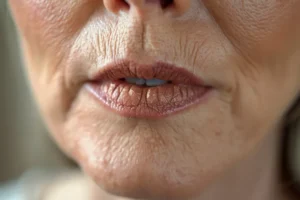Xerostomia, commonly known as dry mouth, occurs when the salivary glands do not produce sufficient saliva to keep the mouth moist. This condition can significantly affect oral health, leading to difficulties in speaking, tasting, swallowing, and even an increased risk of dental decay and gum disease. Saliva is crucial for neutralizing acids produced by bacteria in the mouth and for aiding in the digestion process. Therefore, understanding the causes, symptoms, and potential treatments for xerostomia is essential for maintaining optimal oral hygiene and preventing further complications.
Understanding Xerostomia
Xerostomia, commonly known as dry mouth, is a condition that affects a substantial number of individuals, impacting their overall quality of life and oral health. Understanding the nuances of this condition is essential for both patients experiencing symptoms and dentists who aim to provide effective treatment. This article delves into the definition of xerostomia, its underlying causes, and the implications it has on oral health.
Early recognition and proper management of xerostomia are crucial in preventing more severe complications. By gaining a comprehensive understanding of this condition, patients and healthcare providers can work together to address the symptoms and improve oral health outcomes.
What is Xerostomia?
Xerostomia is defined as the subjective sensation of a dry mouth, often due to a significant reduction in or complete absence of saliva production. Saliva plays a crucial role in lubricating the oral cavity, facilitating digestion, and protecting teeth from decay. Therefore, a lack of adequate saliva can lead to several oral health issues.
Saliva aids in moistening food, making it easier to chew and swallow. It also contains enzymes that initiate the digestion of carbohydrates. Moreover, saliva has antibacterial properties that help maintain a balanced oral microbiome. When saliva production is disrupted, it can result in difficulties speaking, swallowing, and an increased risk of dental caries and oral infections.
Patients with xerostomia may experience a range of symptoms, including a sticky or dry feeling in the mouth, frequent thirst, sores in the mouth, cracked lips, and a burning sensation in the mouth or tongue. Identifying these symptoms early on can help in seeking timely medical advice and treatment.
Causes of Xerostomia
There are numerous causes of xerostomia, making it essential to identify the specific reason behind each patient’s condition. Some common causes include:
- Medications: Many prescription and over-the-counter drugs list dry mouth as a side effect. These include antihistamines, decongestants, pain medications, diuretics, and antihypertensives.
- Medical Conditions: Diseases such as diabetes, Sjögren’s syndrome, Parkinson’s disease, and HIV/AIDS can affect salivary gland function, leading to xerostomia.
- Cancer Therapy: Radiation therapy to the head and neck area can damage salivary glands, while chemotherapy can alter the nature of saliva and its production.
- Lifestyle Factors: Habits such as smoking, excessive alcohol consumption, and recreational drug use can contribute to dry mouth.
In some cases, xerostomia may be a temporary condition resulting from dehydration or transient illness. However, if it persists, it is vital to consult with a healthcare provider to pinpoint the underlying cause and determine an appropriate treatment plan.
By understanding the diverse causes of xerostomia, patients and dentists can collaboratively develop strategies to alleviate symptoms and mitigate the risk of associated oral health problems. In doing so, they can enhance both comfort and quality of life, fostering better overall well-being.
If you found this article insightful, consider exploring our other articles on oral health topics such as the impact of diet on dental health, advanced treatments in implantology, and preventive care strategies to maintain a healthy smile.
Impact of Xerostomia on Oral Health
Xerostomia, commonly known as dry mouth, is a condition characterized by a significant decrease in saliva production. This condition can have a profound impact on various aspects of oral health. Due to the essential role that saliva plays in maintaining oral hygiene and overall health, its deficiency can lead to numerous complications. Understanding these effects can help in developing adequate treatment plans and preventive measures.
Saliva is crucial for moistening and cleaning our oral cavity. It contains enzymes, electrolytes, and antibodies that inhibit the growth of bacteria and fungi. Without sufficient saliva, the risk of oral infections and dental problems increases substantially. Moreover, patients with xerostomia often experience difficulties in speaking, chewing, and swallowing, affecting their quality of life.
Effect on Teeth
Xerostomia significantly impacts dental health, primarily due to the lack of natural cleansing and buffering activity that saliva provides. Saliva acts as a natural defense mechanism by neutralizing acids produced by bacteria in the mouth, which can lead to dental erosion and cavities. In its absence, there is a higher susceptibility to tooth decay.
Moreover, the decreased saliva flow often results in the accumulation of plaque and tartar on the teeth. This condition creates an environment conducive to the growth of harmful bacteria, leading to the formation of cavities and tooth decay. Patients with xerostomia should adopt rigorous oral hygiene practices, including frequent brushing and flossing, to mitigate these risks.
In severe cases, patients may experience dental hypersensitivity due to the erosion of enamel, the tooth’s outer protective layer. This can cause severe discomfort and pain when consuming hot, cold, or sugary foods and beverages. Regular dental check-ups and the use of fluoride treatments can help in managing these issues effectively.
Effect on Gums
The deficiency of saliva also negatively impacts gum health. Saliva aids in the removal of food particles and debris, thereby preventing the formation of plaque, which can lead to gingivitis and periodontal disease. Without adequate saliva production, plaque buildup becomes more prevalent, causing inflammation and infection of the gums.
Gingivitis, the initial stage of gum disease, is characterized by red, swollen, and bleeding gums. If left untreated, it can progress to periodontitis, a more severe form of gum disease that affects the supporting structures of the teeth, leading to tooth loss. Regular professional cleanings and the use of antimicrobial mouth rinses can help manage the progression of gum disease in xerostomia patients.
Additionally, patients with xerostomia may experience sores and ulcers on their gums and oral mucosa due to the lack of lubrication. This condition not only causes discomfort but also makes it challenging to maintain oral hygiene. Specialized dental care and the use of saliva substitutes can offer relief and improve gum health.
Impact on Salivary Glands
Xerostomia is often a result of damage or dysfunction of the salivary glands themselves. Several factors can contribute to this, including certain systemic diseases like Sjögren’s syndrome, medications, radiation therapy for head and neck cancers, and aging. The diminished function of these glands leads to a decreased production of saliva, exacerbating oral health issues.
In cases where the salivary glands are irreversibly damaged, patients may require long-term management strategies to cope with dry mouth symptoms. Artificial saliva products, sialogogues (agents that stimulate saliva production), and adequate hydration can help alleviate some of the discomfort associated with xerostomia.
Moreover, consistent professional monitoring and interventions are necessary to manage the underlying causes and mitigate the oral health consequences. Treatment plans should be tailored to individual needs, considering the severity of the condition and associated health factors.
In conclusion, xerostomia has a significant impact on various aspects of oral health, including the teeth, gums, and salivary glands. Managing this condition requires a comprehensive approach that includes both preventive and therapeutic strategies. For more in-depth information on how other conditions affect oral health, explore our related articles.
Managing Xerostomia
Xerostomia, commonly known as dry mouth, is a condition where the salivary glands in your mouth don’t produce enough saliva to keep your mouth wet. This can be a cause of discomfort and can significantly affect the quality of life. It is important to manage xerostomia effectively as it can lead to other oral health issues, such as increased risk of dental decay, mouth sores, and oral infections. Understanding the underlying causes and exploring both home remedies and medical treatments can help in managing this condition.
The causes of xerostomia can vary widely and include factors such as medication side effects, dehydration, radiation therapy, and other medical conditions like diabetes and Sjögren’s syndrome. Identifying the root cause is crucial in determining the best approach to management. Here, we explore some strategies that can help alleviate the symptoms of dry mouth.
Home Remedies and Lifestyle Changes
Home remedies and lifestyle changes can play a significant role in managing xerostomia. Simple adjustments in your daily routine can help stimulate saliva production and provide relief. Consider the following tips:
- Stay Hydrated: Drinking plenty of water throughout the day can help keep your mouth moist. Aim for at least 8 glasses a day.
- Chewing Sugar-Free Gum: Chewing gum that contains xylitol can help stimulate salivary glands and increase saliva flow.
- Avoid Alcohol and Tobacco: Both alcohol and tobacco can dry out your mouth. Reducing or eliminating their use can improve symptoms.
- Humidify Your Environment: Using a humidifier, especially at night, can help maintain moisture levels in the air and prevent dryness.
Dietary modifications are also essential. Limit your intake of caffeine, spicy foods, and salty foods, as these can exacerbate dry mouth symptoms. Additionally, incorporating foods that naturally boost saliva production, like celery, carrots, and apples, can be beneficial. Remember, consistency in these lifestyle changes is key to seeing improvement.
Medical Treatments and Professional Care
In cases where home remedies and lifestyle changes are not sufficient, medical treatments and professional care may be necessary. Your dentist or healthcare provider can offer various interventions to help manage xerostomia: Prescription Medications: There are medications, such as pilocarpine and cevimeline, which can help stimulate saliva production. These medications are typically prescribed for individuals with severe dry mouth symptoms caused by conditions like Sjögren’s syndrome.
Saliva Substitutes: Over-the-counter saliva substitutes are available in the form of gels, sprays, and mouthwashes. These products can provide temporary relief by mimicking the properties of natural saliva and keeping the mouth moist.
Regular Dental Check-ups: Frequent visits to the dentist are crucial for individuals with xerostomia. Professional cleanings and fluoride treatments can help protect your teeth from decay, which you are more susceptible to when experiencing dry mouth. Your dentist may also recommend special toothpaste and oral rinses designed for dry mouth relief. While there is no one-size-fits-all approach to managing xerostomia, combining home remedies with professional care can significantly improve symptoms and enhance overall oral health. If you are dealing with persistent dry mouth, it’s important to consult with your healthcare provider to determine the most effective management strategy for you.
Interested in learning more about oral health and other related topics? Be sure to check out our other articles for more insightful information.
Understanding Xerostoma and Its Effects on Dental Health
Xerostomia, commonly known as dry mouth, can significantly impact your dental health. Here are some frequently asked questions to better understand what causes xerostomia and how it can affect your oral health.
What causes xerostomia?
Xerostomia is often caused by a decrease in saliva production, which can be due to various factors including certain medications, aging, radiation therapy to the head and neck areas, diabetes, and autoimmune diseases such as Sjogren’s syndrome. Stress and anxiety can also contribute to this condition.
How can xerostomia affect my oral health?
Dry mouth can lead to several oral health issues including an increased risk of dental cavities, gum disease, and mouth infections. Saliva helps neutralize acids produced by bacteria in the mouth and washes away food particles. Without sufficient saliva, the risk of harm to your teeth and gums is significantly heightened.

My name is Salman Kapa, a 73-year-old expert in bone regeneration and dental implantology. With decades of experience in the field, I am dedicated to advancing our understanding of oral health and hygiene. Through my research and writing, I aim to contribute to the development of innovative solutions in dental care.




